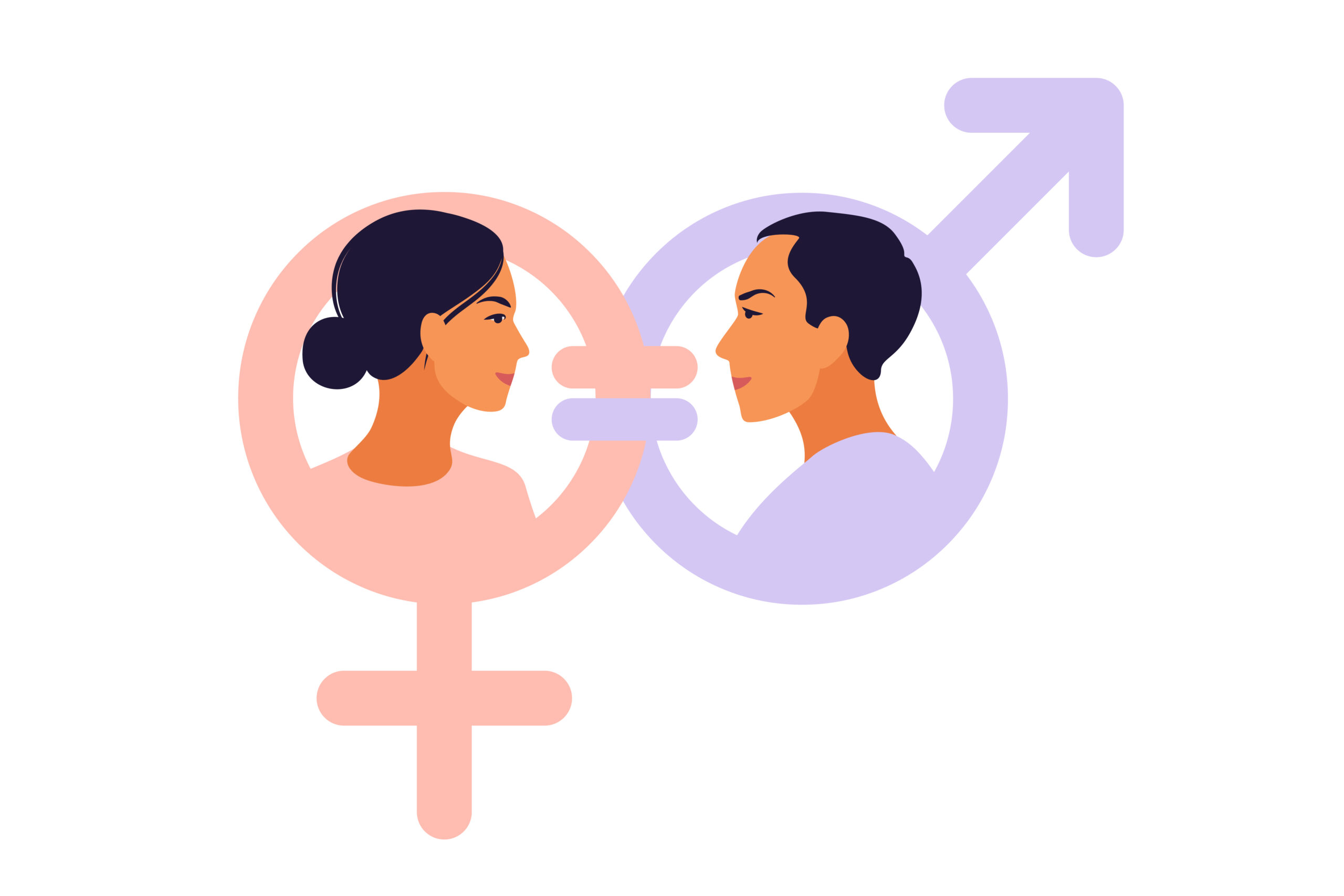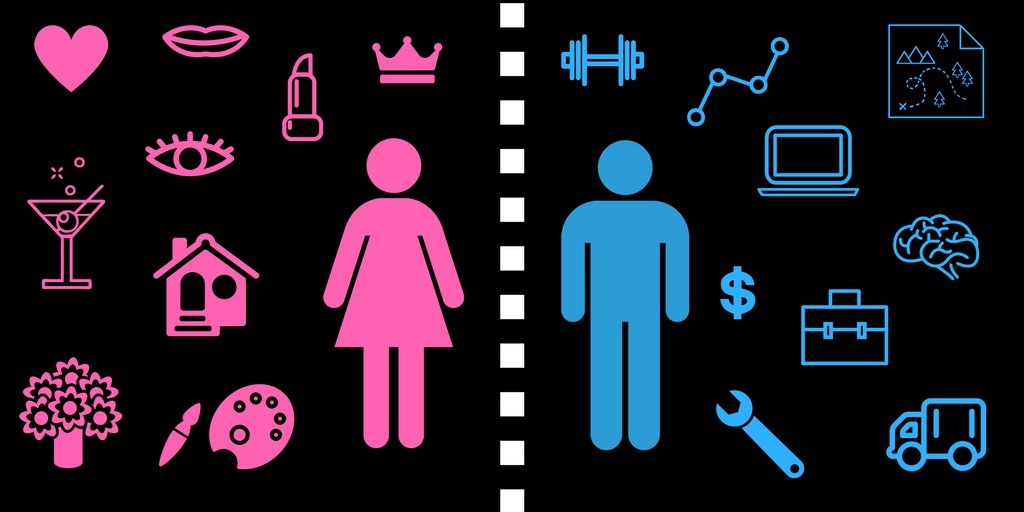
As we grow as a society, we broaden the horizons of what we were once exposed to. Even in a society that is as progressive as Singapore, gender as a concept can be a very hard topic to discuss.
However, if you’re someone who is looking to bring up this topic socially or professionally, it’s important to first get a grasp of what you will be addressing.
So, what are gender norms?
In a very atas way, this is the definition of gender norms. “Gender norms are the social and cultural expectations and rules that dictate appropriate behaviour, roles, and activities for individuals based on their gender.”
In other words, how you are expected to behave based on the letter under ‘sex’ on your IC.
Now you might be wondering, what can be so bad about adhering to these roles? There is nothing inherently wrong with giving in to gender norms, as long as you are aware that you have another choice.
Let me give you a trivial example. Say you are a woman, or identify as such, and our favourite colour is pink. Nothing wrong with that, so long as you are allowed to experiment with other colours as well, like blue! Which, by the way, is normally deemed to be a “boy” colour.
Now, imagine that your favourite colour, or so you think, is pink. Why? Because growing up, you were told, “Aiyo, Ah Girl ah, don’t always wear blue or black can? Like that, you look like boy leh!”
So… in a very simplistic sense, giving in to gender norms is all well and good, so long as you are educated on the other options that exist for you, regardless of gender, and your worldview isn’t limited to just ‘What boys or girls normally do.’
Gender norms, or societal expectations about how individuals of different genders should behave, can have various impacts on society. Some of these effects can be positive for certain people, especially when it comes to adhering to social cohesion and specialisation of roles in the family or social unit.
However, the downsides to gender roles can very quickly start to take their toll on people when they do not adhere to the expectations placed on them solely based on gender, limiting their progress and negatively affecting their mental health.
Here are five significant effects of gender roles on people in society:
Limited Opportunities and Roles:
One of the biggest ways gender norms impact us is in our career choices. In Singapore, there’s still a noticeable gender gap in certain industries. For instance, engineering and IT sectors are predominantly male, while fields like nursing and teaching are mostly female. This isn’t just about personal preference—it’s also about societal expectations.
If you recall your own upbringing in Singapore, maybe you can reflect on the differences in career advice offered to you, or your family members of a different genre.
Growing up, boys might hear more about becoming engineers or scientists, while girls are often nudged towards careers in healthcare or education. In my opinion, girls should be encouraged to love the sciences as much as their male peers! For many people in the older generation, advice is well-intentioned but outdated.
How many female readers among us can relate to being nudged into jobs that are more “maternal” like teaching or nursing?
While the guys among us are pushed to achieve more as “providers” of the family.
This can lead to a workforce that’s not fully balanced, and it can limit the potential of individuals who might excel in non-traditional roles for their gender.
A 2020 survey by the Ministry of Manpower showed that women are still underrepresented in senior management roles. Despite efforts to promote gender equality, traditional norms around leadership and assertiveness—traits often stereotypically associated with men—persist. This not only hinders women’s career progression but also means companies might miss out on diverse perspectives.
Gender Inequality:
Unequal expectations and treatment of individuals based on their gender can result in disparities in wages, education, and access to resources.
In many societies where both spouses work outside of the home, household chores and duties are still considered the responsibility of the woman.
As the writer, I do believe that managing a house is the shared joy and burden of both partners! If you can live in the same house, and dirty the same amount of laundry, you can afford to share in chores as well!
While this is not always the case for many families, sometimes the split in housework can only get more unfair when the children are born, and childrearing duties fall mostly to the mother, while she struggles to maintain her career.
Come on readers, you have to agree, in this economy, very few families have the luxury of having a stay-at-home parent! A study revealed that most stay-at-home parents in Singapore are women, often from single-income households with incomes ranging from around half to more than double the median household income, which is about S$9,500 (todayonline)
In some instances, regardless of the mother’s passion or interest in her career. she might even be encouraged to leave her job to focus on the children.
This inequality affects both men and women, as the stress of breadwinning falls solely on the man, while the stresses of childrearing fall entirely on the woman’s shoulders as well.
While both parents might want a more equal distribution of labour, gender roles coming into play might reinforce harmful stereotypes and limit the full potential of individuals.
Dividing the labour, especially when the little ones are involved, is never easy. But you can always be the first one to ask for help!
For example, if your child needs academic assistance, what better place to look for a tutor than with us at Smiletutor?
That way, you and your spouse have one less thing on your plates to worry about.

Stereotyping and Stigma:
Gender norms can lead to the creation and reinforcement of stereotypes about how individuals should behave.
With the changing mindset of society and the push for people of all genders to go against gender norms, trying to enforce outdated stereotypes might result in stigma and discrimination against those who do not conform to these expectations.
For example, it is encouraged for children to try hobbies that might not have once been available to them due to harsher enforcement of gender norms.
It is not as strange as it was in the past for boys to pick up what would normally be considered feminine dances, like ballet or musical theatre.
Dance is a good skill to encourage in either gender, as it promotes discipline and greater body control and awareness.
More girls are encouraged to pick up sports, even combat sports like boxing or Muay Thai, as a good method of self-defence and fitness.
However, there is still some stigma, although not as harsh as it was in the past, against individuals who challenge traditional gender norms.
This might lead them to face societal judgment or rejection, especially in more conservative societies.
Impact on Mental Health:
The pressure to conform to anything, when it becomes too great, can have a negative impact on one’s mental health. Especially when it comes to something as rigid and perhaps outdated as gender roles.
While gender norms might have existed in the past to streamline the division of labour, strict adherence to these outdated rules can have adverse effects on mental health.
Pressure to conform to societal expectations can lead to stress, anxiety, and depression, especially for individuals who do not identify with traditional gender roles.
This impact is felt by both men and women who may face societal pressure to meet unrealistic standards.
For many of us in Singapore, we do not encounter gender stereotypes just in households and workplace settings but also in our self-image. Take, for example, the unrealistic beauty standards that both men and women are exposed to.
The guys among us know that even from a young age, they are expected to grow into tall, strapping young men. Anyone who has paid celebrities like Benjamin Kheng or even international stars like Chris Evans knows, that it’s all about the muscular physique and a full head of hair.
Girls, on the other hand, are expected to remain slender and immaculately groomed with perfect hair, skin and nails.
While striving to look your best and maintain a healthy physique is important, placing undue pressure on these surface-level qualities, especially in growing youths, can lead to a very negative self-perception.

Barriers to Personal Expression:
In a culturally diverse society like Singapore, there’s an added layer of traditional expectations that can further restrict how individuals express their gender identities.
Men and women may feel compelled to conform to societal expectations rather than expressing their true selves. Both genders can agree that this includes enforcing a certain way of dress and conduct for either gender or choice of hobbies and interests.
Things like art and fashion exist as a method of self-expression to many people, limiting a single gender to a certain style of dress at the risk of seeming “too masculine” or “too feminine” can lessen a person’s avenues for self-expression greatly.
This can limit creativity, self-discovery, and the development of a diverse and inclusive society that values and respects individuals for who they are.

Gender norms influence many aspects of our lives, often in ways we might not immediately recognize. From limiting career opportunities to shaping personal identities, these norms have significant and sometimes detrimental effects. By becoming more aware of these issues and actively challenging traditional roles, we can work towards a more inclusive and equitable society.
